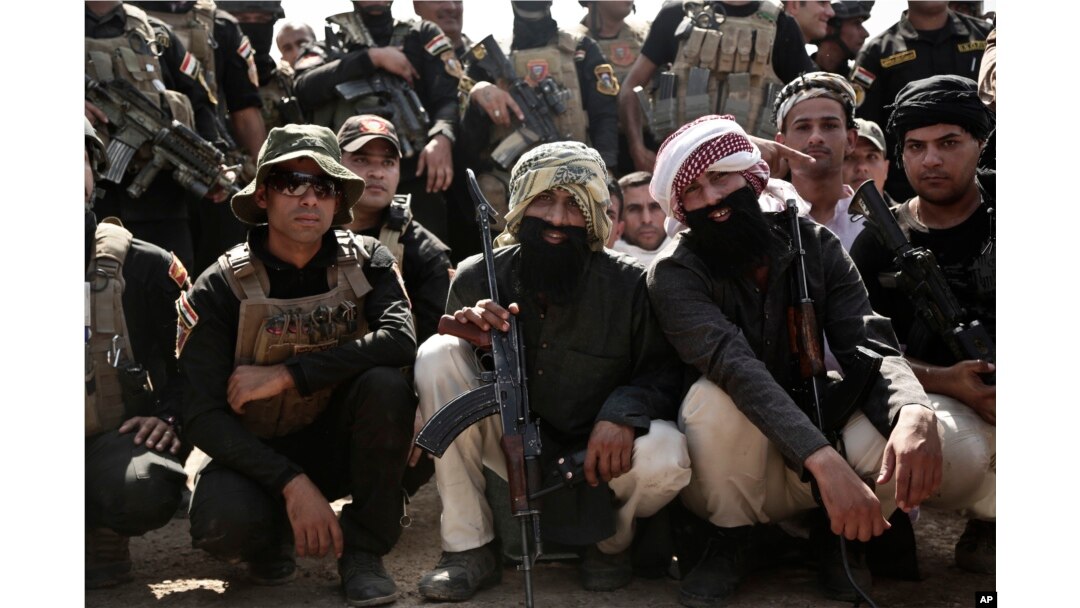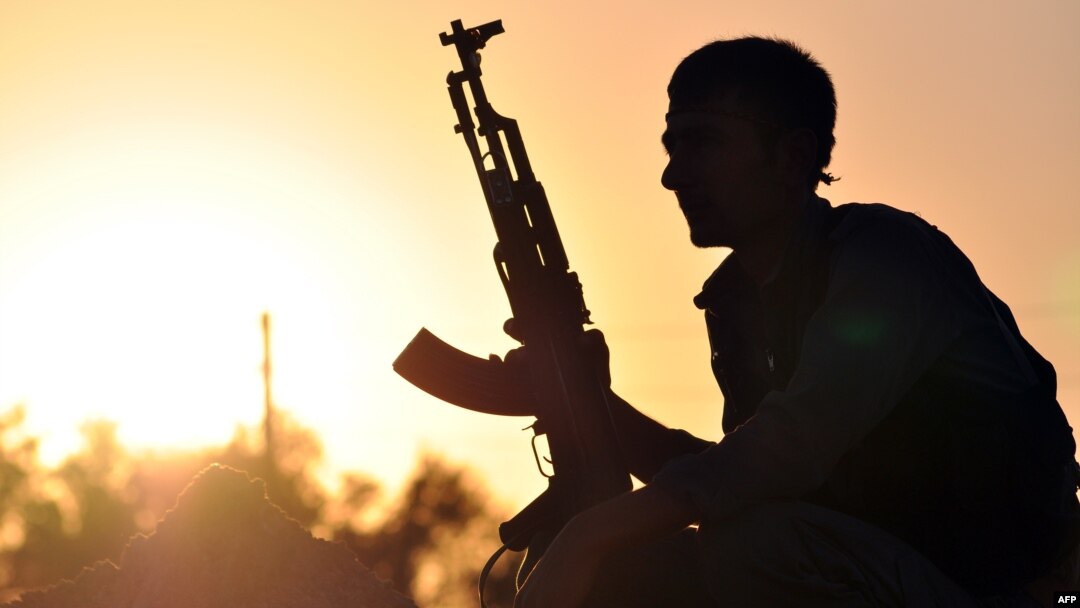If expected military offensives rout the Islamic State group from the cities that are its strongholds in Syria and Iraq, military analysts and Kurdish commanders say the extremists would establish bases in rural areas to further their regional terrorism.
"When they run out of options, and soon they will, [IS fighters] will act more violently outside their areas of control,” said Radwan Badini, a politics professor at Salahaddin University in Irbil, in northern Iraq.
"In the countryside of rural provinces in Syria and Iraq, IS will continue to have an influence and it will try to use these areas as operation centers to stage attacks on their immediate enemies.”
Since 2014, IS has used Iraq and Syria as centers for the establishment and expansion of its self-designated caliphate, virtually changing the map of those two war-torn nations.
Losing territory
However, an array of opposition to Islamic State - including a U.S.-led coalition, government forces, local forces and militia and foreign troops - has left the militant group reeling, and slowly returned parts of Iraq and Syria back to local control.
"We've deprived [IS] of about 25 percent of the territory it once controlled in Syria and more than 50 percent it once controlled in Iraq,”Antony J. Blinken, deputy U.S. secretary of State, said last week during a congressional hearing.
In western Iraq, IS has suffered a series of defeats in Anbar province in recent months.
In the north, Islamic State is fortifying its stronghold in Mosul and planning for a massive attack by Iraqi forces trying to regain control of the city, which had a population of more than two and one-half million when IS captured it more than two years ago. Analysts say the loss of Mosul would leave extremist fighters scattered across a region that is mostly desert.

Soldiers from the 1st Battalion of the Iraqi Special Operations Forces wear fake beards during a training exercise to prepare for the operation to retake Mosul from IS, in Baghdad, Iraq, Sept. 2016
Mosul loss could doom 'caliphate'
The "liberation of Mosul would contain IS expansion in Iraq," said Khaled Akkasheh, head of the National Center for Security Studies in Cairo, and ensure the gradual demise of “their so-called caliphate."
Others say IS would still be a menacing force in Iraq even after losing control of Mosul.
Islamic State is supported by some of the Sunni tribes in Anbar province, according to Aras Dizayee, a military strategist in Irbil. "The group will be relevant as long as it has popular support in these areas,” he said.
Sunni tribes feel alienated from the Shi'ite-dominated Iraqi government in Baghdad, and some see IS as an alternative power base. And some Sunni tribes have profited from doing business with Islamic State - smuggling in oil and goods from IS-controlled territory.
"IS would continue collaborating with these Sunni tribes because that gives it legitimacy among people and a sort of military alliance,” Dizayee said.
Turning old tactic
The Irbil-based analyst said it will be difficult to eliminate IS influence, because the extremist group's members and sympathizers are dispersed among the general population, and from there they can employ an old tactic.
"They know a moment will come where they no longer control territory,” Dizayee said. “So they have trained many suicide bombers, mainly children, to carry out attacks.”
Islamic State's influence in Suinni areas of Iraq likely will spread into Syria, Kurdish commanders say.
“IS has many strong pockets along the Iraq-Syria border,” said General Sime Usali, a commander of Kurdish Peshmerga forces near Mosul. "They will likely be concentrated in those areas when they have been pushed out of Mosul.”
It remains to be seen who will lead IS in Iraq and Syria in the future.
The U.S. military has been targeting IS leadership for months, killing IS commanders in September, 13 of them in the Mosul area. Many more IS leaders are likely to lose their lives in the Mosul battle, analysts say.
"Most of the top-tier IS leaders who have been targeted by U.S. strikes possessed skills that their successors don't necessarily have," said analyst Akkasheh. "But that doesn't mean that [IS] can entirely be weakened.”
A militant Islamist fighter uses a mobile to film his fellow fighters taking part in a military parade along the streets of Syria's northern Raqqa province. (2014/file)
The spillover effect from an IS retreat from Mosul will likely coincide with a depleted IS in Syria.
The U.S.-led coalition, Turkey and Arab forces are planning an assault in the group's Syrian stronghold, Raqqa, after pushing IS out of northern Syria in recent weeks.
Routing IS from Raqqa could further complicate the chaotic situation in the Syrian civil war, analysts say. IS is increasing its presence in areas once held by Syrian rebel forces, and is battling both Damascus government forces and rebels in central and southern Syria.
"Symbolically, removing [IS] from its self-proclaimed capital is significant,” Akkasheh said in an interview with VOA. "Strategically, however, it would perhaps allow IS to search for newer footings.”


